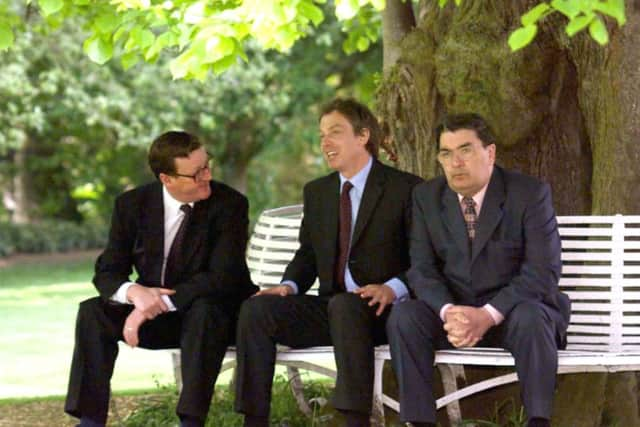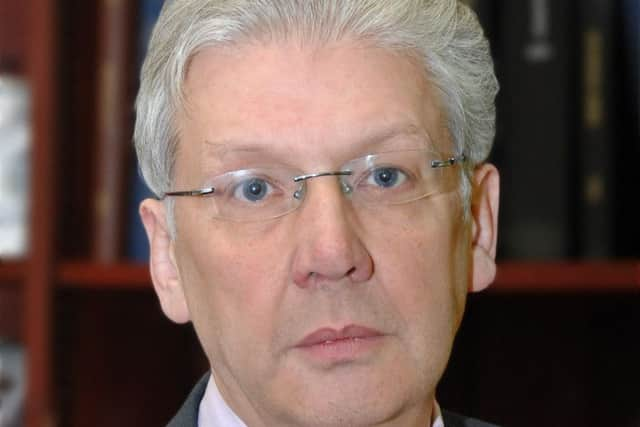1998 deal: Paul Bew '“ '˜The GFA is a UUP and SDLP achievement, not a SF one'
and live on Freeview channel 276
Like the Act of Union it was not signed at all.
The agreement came into being as the result of the rules of the talks process.
These rules gave the SDLP and the UUP plus loyalist allies the capacity of strike a deal because, respectively, they then held over fifty per cent of the vote within their blocs.


Advertisement
Hide AdAdvertisement
Hide AdTalk about signing has three effects. It downplays the absolutely decisive role of Trimble and Mallon; it overplays the role of Sinn Fein and ignores the role of the DUP.
Sinn Fein was agnostic on the day. Gerry Adams proclaimed ‘when we have democratically come an conclusion we will let you know’.
The cleverness of Sinn Fein’s strategy lay not during the talks process because up until very near the end they had expected pan nationalist unity with the SDLP to prevent a deal with the UUP.
When that did not happen they hastily negotiated concessions on prisoners and de-commissioning. Nonetheless there is no doubt that the GFA is a UUP and SDLP achievement not a Sinn Fein achievement .


Advertisement
Hide AdAdvertisement
Hide AdThe cleverness in Sinn Fein’s strategy came later when the Party took a mere seven weeks to come to terms with the agreement — Bertie Ahern and others had been expecting a rather longer time scale.
The murals in West Belfast depicting the charred skulls outside Stormont were hastily painted over.
The DUP were involved in the early stage of the process, had agreed the rules which passed the initiative to the UUP. It is interesting to speculate as to the calculations which lay behind this.
Many in the media insist on the constructive ambiguity of the GFA. Actually this ambiguity applies only to the issue of de-commissioning which was fudged.


Advertisement
Hide AdAdvertisement
Hide AdIn fact, as far as political structures and principles are concerned, there is very little ambiguity in the Belfast Agreement.
‘Constructive ambiguity’ was first used by Michael Farrell in his book ‘The Orange State’ to describe the Sunningdale deal of 1974. In truth, the 1974 agreement was much more ambiguous — in particular the principle of consent was not respected as it was in 1998 by the changes in the Irish constitution.
The final week of the talks was indeed a drama.
The UUP ,in its own mind, had successfully dealt with the worst aspects of the Framework document of 1995 by removing the terms dynamic, executive and harmonising from the description of any North/South bodies.


Nonetheless Dublin still managed to present a document presenting a grandiose vision of the Irish dimension.
Advertisement
Hide AdAdvertisement
Hide AdSir Oliver Napier, among others, persuaded Tony Blair that this would not work. Blair, in turn, persuaded Bertie Ahern that, if he did not compromise, the Irish government would suffer some of the blame for the failure of the talks.
Once the UUP knew that it had won this argument, it sought to accommodate the SDLP vision on Strand One institutions which owed much to the work of Mark Durkan.
It is worth recalling this because North/South have become increasingly non controversial in the twenty years since the Agreement but, at the time, they were the subject of intense suspicions.
Instead it was to be de-commissioning, prisoner release and police reform which polarised relations.
• Lord Bew is a historian and former advisor to David Trimble